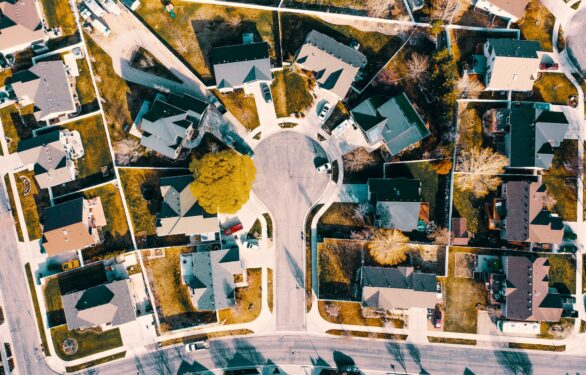The housing market is a sector of the U.S. economy that affects everyone. We all need a place to live. Whether you are a homeowner, a renter, or someone currently caught in the middle, what is going on in the housing world is likely shaping your financial plans. It may be putting the squeeze on your wallet too.
Here is a rundown on how we ended up in today’s housing market quandary:
Interest rates are rising rapidly.
Rising interest rates have an immediate impact on the affordability of housing. As soon as the Federal Reserve started raising rates, the housing market began to slow down. Remember just a few short months ago when homes were flying off the market at sky high prices? It only took a few interest rate hikes to bring that all to a grinding halt.
The higher interest rates go, the less affordable mortgages become.
One of the main drivers of the housing market acceleration in the first place was the ability for people to get mortgages at a lower monthly price tag. When interest rates dropped to historic lows, a prospective homeowner could afford to buy what had previously been out of reach financially. Since lots more people could afford to buy, there were simply not enough available homes to go around.
Now we are seeing the opposite. Mortgages have become less affordable, as monthly interest payments are spiking. People who could have bought a home a few months ago (if they could find one) now can’t make the numbers work with their monthly cashflows. Plus, current homeowners are staying put, hanging on to their low interest rate mortgages instead of considering a move. Fewer homes going on the market and fewer prospective buyers means the real estate world is quite sluggish.
Homebuilders have slowed production.
As the ability for the average American to purchase a home has fizzled, homebuilders have slowed their production of new houses. Why? Demand for new homes has decreased. Many “would be” new home buyers are deciding to remain in starter homes or houses with less square footage, as inflation has pinched people’s wallets. In addition, first-time homebuyers are pumping the brakes, sticking with renting for similar reasons.
Both situations lead to an overall decrease in families interested in a new home purchase. Add on the still elevated costs of building supplies due to the kinked supply chain, and homebuilders are struggling to make the numbers work. It is quite likely that the lack of building will only worsen an already tight housing supply.
Continued high inflation could be in the offing.
Where will the dual forces of rising interest rates and a drop in homebuilding pace lead? Unfortunately, the economic effect could be continued high inflation readings. There are simply not enough properties to rent as an alternative to home buying, which is causing demand to keep running hot. And high demand with low supply leads to increasing prices. A large portion of the inflation calculation is the cost of housing. Getting inflation back under control will be a challenging task until something gives way in the housing market.
